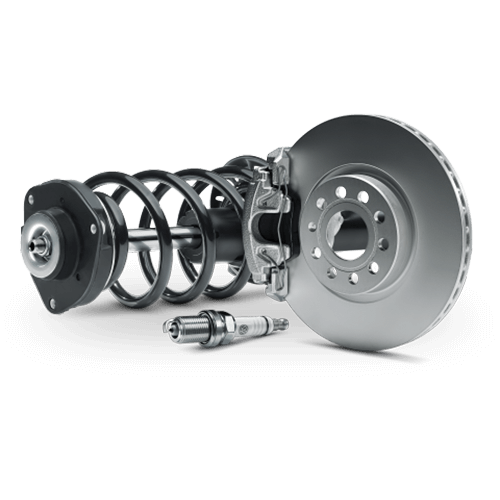
Electric Car Maintenance Costs vs. Gas
In the ever-evolving world of automotive technology, the battle between electric cars and their gas-guzzling counterparts has become a topic of intense debate. As the electric car revolution gains momentum, one question looms large: which option is truly more cost-effective when it comes to maintenance? Buckle up, because we're about to uncover the shocking truth.
The Rise of Electric Cars
The electric car industry has been on a meteoric rise in recent years, with more and more drivers embracing the benefits of zero-emission vehicles. From the sleek Tesla models to the practical Nissan Leafs, the appeal of electric cars is undeniable. But as these eco-friendly machines take over the roads, a new question arises: how do their maintenance costs stack up against the tried-and-true gas-powered cars?
The Ongoing Debate: Electric vs. Gas
The debate between electric and gas-powered vehicles has been raging for years, with each side touting their own advantages. Proponents of electric cars tout their environmental friendliness, reduced fuel costs, and the thrill of instant acceleration. Meanwhile, gas car enthusiasts argue that the infrastructure for electric vehicles is still lacking, and that the upfront cost of an electric car can be a significant barrier to entry.
The Shocking Truth: Electric Car Maintenance
When it comes to maintenance, electric cars have a distinct advantage over their gas-powered counterparts. With fewer moving parts and a simpler drivetrain, the maintenance requirements for electric cars are significantly reduced. Gone are the days of oil changes, tune-ups, and the constant worry of engine problems.
Fewer Moving Parts, Fewer Headaches
One of the biggest benefits of electric cars is their simplicity. Unlike gas-powered vehicles, which have complex engines, transmissions, and a myriad of other moving parts, electric cars have a relatively straightforward design. This means fewer components to maintain, and a lower risk of costly breakdowns.
The Myth of the Never-Ending Battery
Another common misconception about electric cars is that their batteries are indestructible. While it's true that electric car batteries are designed to last for many years, they do eventually need to be replaced. However, the cost of a battery replacement is often offset by the savings in fuel and other maintenance costs.
"Brake" it to Me Gently: Regenerative Braking
One of the most innovative features of electric cars is their regenerative braking system. Instead of wearing down traditional brake pads, electric cars use the motor to slow the vehicle, which in turn recharges the battery. This not only extends the life of the brake components, but it also reduces the frequency of brake maintenance.
Gas Cars: The Old Faithful (or Unfaithful?)
While electric cars may have the upper hand when it comes to maintenance, gas-powered vehicles still have their own set of challenges. From the never-ending cycle of oil changes to the constant worry of emissions system problems, gas car owners have their fair share of headaches.
Oil Changes: A Slippery Slope
One of the most common maintenance tasks for gas-powered vehicles is the dreaded oil change. This routine procedure can quickly add up, with the average cost of an oil change ranging from $30 to $100 or more, depending on the make and model of the vehicle.
The Exhaust-ing Truth About Emissions Systems
Another ongoing issue with gas-powered cars is the maintenance of their emissions systems. These complex systems, designed to reduce harmful pollutants, can be a constant source of trouble, with issues like catalytic converter failures and faulty oxygen sensors costing hundreds, if not thousands, of dollars to repair.
Transmission Troubles: Shifting Gears on Your Wallet
Transmissions are another area of concern for gas-powered vehicles. Whether it's a manual or automatic transmission, these intricate components can be expensive to maintain and repair, with costs ranging from a few hundred dollars for a simple fluid change to several thousand for a full transmission replacement.
Electric Car Maintenance Costs: A Closer Look
Now that we've explored the maintenance challenges of gas-powered vehicles, let's take a closer look at the costs associated with electric car ownership.
Battery Replacement: The Elephant in the Garage
One of the biggest concerns when it comes to electric car maintenance is the cost of battery replacement. While the batteries in modern electric cars are designed to last for many years, they will eventually need to be replaced. The cost of a new battery can range from $3,000 to $15,000, depending on the make and model of the vehicle.
Software Updates: When Your Car Needs a Reboot
Another aspect of electric car maintenance is the need for regular software updates. These updates can address everything from bug fixes to performance enhancements, and they are typically delivered over-the-air, much like updates for your smartphone. While the cost of these updates is generally minimal, they can add up over time.
Tire Wear: The Great Equalizer
One area where electric and gas-powered cars are on a more even playing field is tire wear. Electric cars, with their instant torque and heavy batteries, can put a lot of stress on tires, leading to more frequent replacements. However, this is a cost that both electric and gas-powered car owners will have to contend with.
Gas Car Maintenance Costs: The Devil You Know
While electric cars may have the advantage when it comes to certain maintenance tasks, gas-powered vehicles still have their own set of challenges.
Fuel System Woes: Injector Drama and Pump Problems
One of the ongoing issues with gas-powered cars is the maintenance of the fuel system. From faulty fuel injectors to failing fuel pumps, these problems can be costly to repair, with the average cost ranging from $300 to $1,000 or more.
Spark Plugs and Ignition Issues: The Shocking Expenses
Another area of concern for gas-powered vehicles is the maintenance of the ignition system. Spark plugs, ignition coils, and other ignition components can wear out over time, leading to costly repairs that can easily reach into the hundreds or even thousands of dollars.
Belts and Hoses: The Unsung Heroes of Your Engine
While they may not be as glamorous as other engine components, the belts and hoses in a gas-powered vehicle play a crucial role in keeping the engine running smoothly. Replacing these components can be a relatively inexpensive task, but the frequency with which they need to be serviced can add up over time.
The Great Brake Debate
One of the key differences between electric and gas-powered cars when it comes to maintenance is the braking system.
Electric Car Brake Changes: A Rare Occurrence
Thanks to the regenerative braking system, electric cars experience significantly less wear and tear on their brake components. This means that brake pad and rotor replacements are much less frequent, saving electric car owners a significant amount of money over the life of the vehicle.
Gas Car Brakes: The Frequent Flyers of Maintenance
In contrast, gas-powered vehicles rely on traditional friction-based braking systems, which can wear down brake pads and rotors much more quickly. This means that brake maintenance is a more frequent and costly task for gas car owners, with the average cost of a brake job ranging from $300 to $800 or more.
Hidden Costs and Savings
When it comes to the overall cost of ownership, there are a few other factors to consider when comparing electric and gas-powered vehicles.
Electricity vs. Gasoline: The Price War
One of the most significant cost savings for electric car owners is the reduced fuel costs. While the upfront cost of an electric vehicle may be higher, the cost of "fueling" the car with electricity is typically much lower than the cost of gasoline.
Insurance: Are Electric Cars Shocking Insurers?
Another factor to consider is the cost of insurance. Electric cars, with their advanced technology and safety features, may be more expensive to insure than their gas-powered counterparts. However, this cost can be offset by the savings in maintenance and fuel expenses.
Resale Value: Depreciating Assets or Future Classics?
When it comes to resale value, the jury is still out on electric cars. While some models have held their value well, the rapid pace of technological advancement in the electric car industry means that older models may quickly become obsolete. Gas-powered vehicles, on the other hand, have a more established resale market, but their value can also be impacted by factors like fuel efficiency and emissions regulations.
Environmental Impact: Beyond the Wallet
When considering the maintenance costs of electric and gas-powered vehicles, it's important to also consider the environmental impact of each option.
Carbon Footprint Comparison
Electric cars, with their zero-emission operation, have a significantly lower carbon footprint than their gas-powered counterparts. This not only benefits the environment but can also lead to tax incentives and other financial benefits for electric car owners.
Long-Term Sustainability Considerations
Looking to the future, the long-term sustainability of electric cars is another important factor to consider. As the grid becomes increasingly powered by renewable energy sources, the environmental benefits of electric cars will only continue to grow.
The Verdict: Electric or Gas?
So, which option is truly more cost-effective when it comes to maintenance? The answer, as with most things in life, is not a simple one.
Crunching the Numbers
When you factor in the cost of maintenance, fuel, and other associated expenses, the overall cost of ownership for an electric car can be significantly lower than that of a gas-powered vehicle. However, the upfront cost of an electric car can still be a barrier for many consumers.
Lifestyle Considerations
Ultimately, the decision between an electric or gas-powered car will depend on your individual lifestyle and driving needs. If you have a short commute and access to reliable charging infrastructure, an electric car may be the more cost-effective and environmentally-friendly choice. But if you have a long-distance driving lifestyle or limited access to charging, a gas-powered car may still be the better option.
The Future of Automotive Maintenance
As the electric car revolution continues to gain momentum, the landscape of automotive maintenance is sure to evolve. With fewer moving parts and a focus on software updates, the maintenance requirements for electric cars may become even more streamlined in the years to come. Meanwhile, gas-powered vehicles will likely continue to face the same challenges, with the added pressure of stricter emissions regulations and the need for more sustainable solutions.
Conclusion: Driving into the Future
In the end, the choice between an electric or gas-powered car is a highly personal one, with a multitude of factors to consider. But one thing is clear: the future of automotive maintenance is poised for a dramatic shift, as the electric car revolution continues to transform the way we think about and maintain our vehicles.
So, whether you're a die-hard gas car enthusiast or a eco-conscious electric car devotee, one thing is certain: the road ahead is sure to be a fascinating and electrifying journey.























































